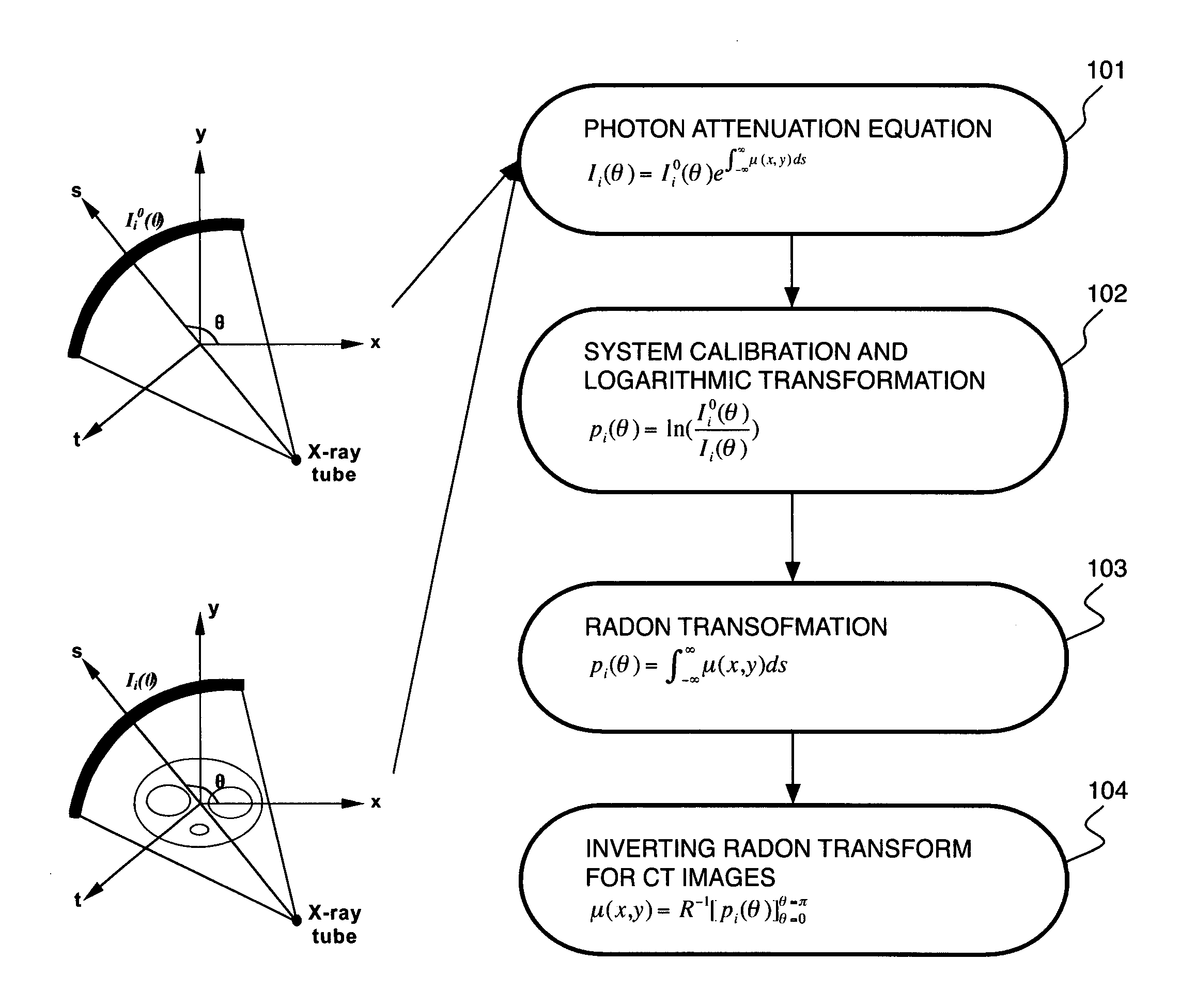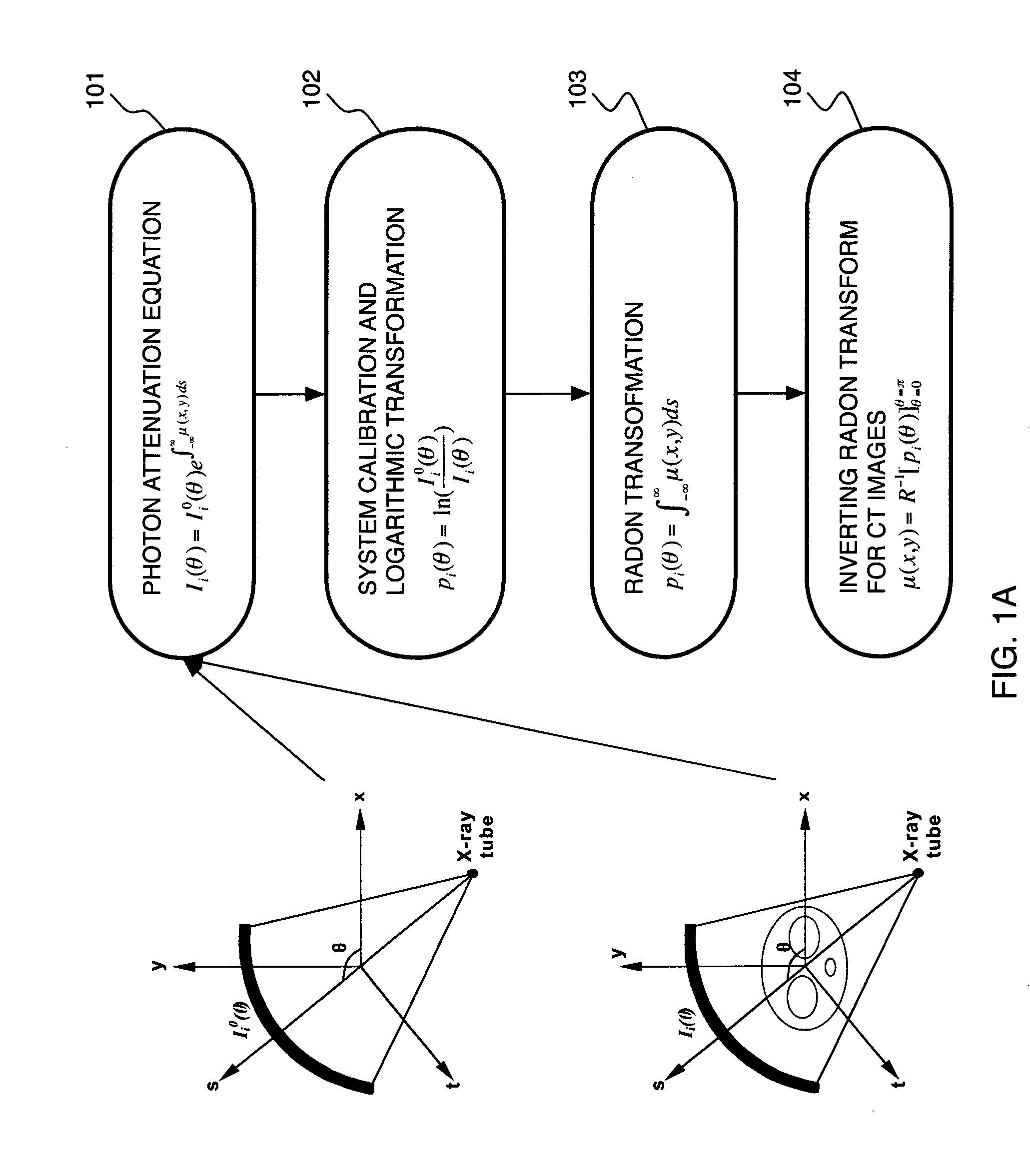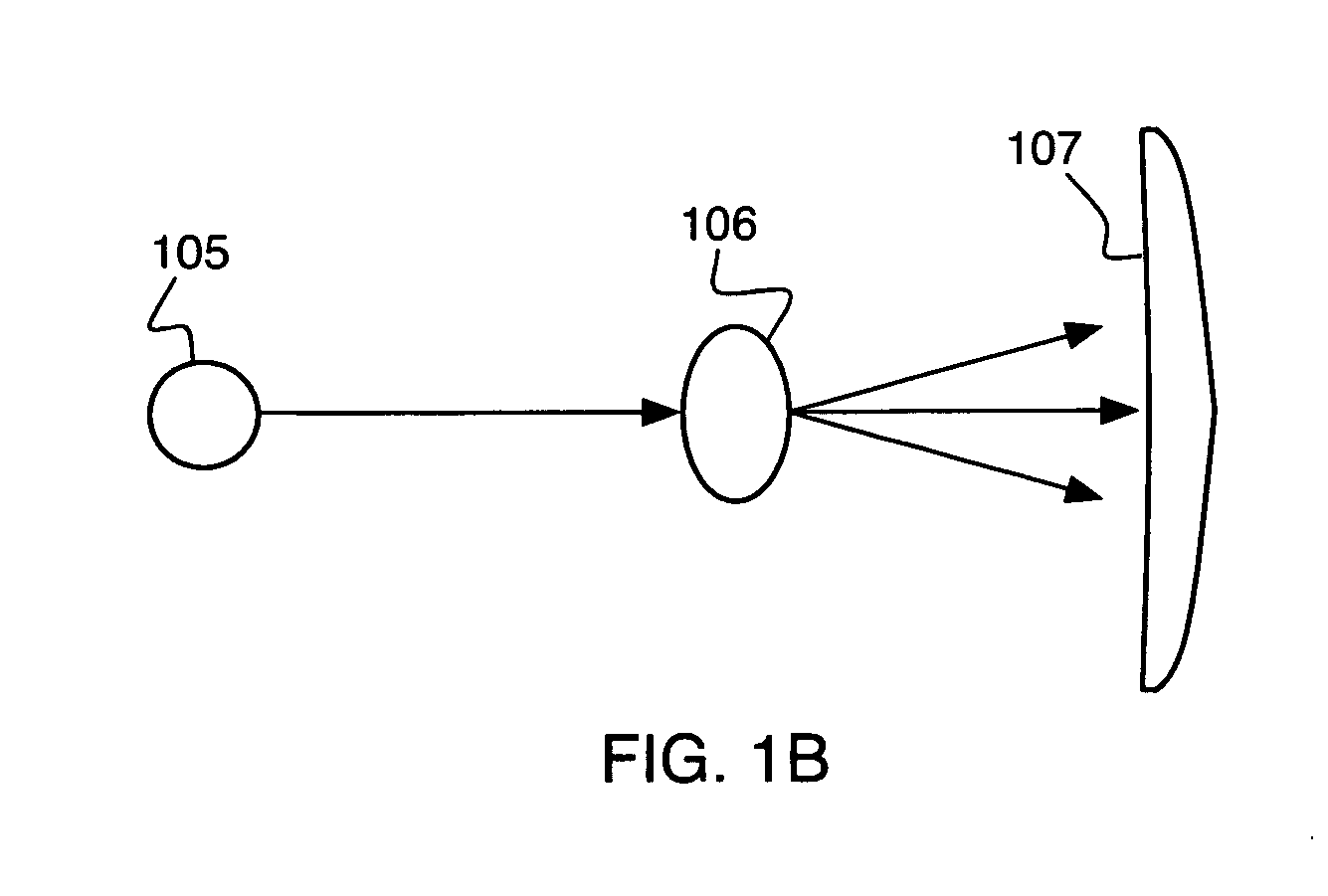Noise treatment of low-dose computed tomography projections and images
- Summary
- Abstract
- Description
- Claims
- Application Information
AI Technical Summary
Benefits of technology
Problems solved by technology
Method used
Image
Examples
Embodiment Construction
[0045]Referring to FIG. 1B, computed tomography (CT) projections can be obtained by emitting x-rays from a source 105, passing the x-rays through an object of interest 106, such as a patient, and imaging the x-rays on an x-ray detector 107. According to an embodiment of the present invention, a noise treatment method for low-dose CT comprises an adaptive filter in sinogram domain (107) and smoothing in image domain (106).
[0046]In the sinogram domain, projection data acquired for image reconstruction of low-dose CT can be degraded by many factors. These factors complicate noise analysis on the projection data and present a challenging task for noise reduction. To achieve accurate noise treatment in sinogram space, the noise properties of the projection data can be determined by analyzing repeatedly acquired experimental anthropomorphic phantom data sets. The statistical analysis shows that the noise can be regarded as normally distributed with a nonlinear signal-dependent variance. A...
PUM
 Login to View More
Login to View More Abstract
Description
Claims
Application Information
 Login to View More
Login to View More - R&D
- Intellectual Property
- Life Sciences
- Materials
- Tech Scout
- Unparalleled Data Quality
- Higher Quality Content
- 60% Fewer Hallucinations
Browse by: Latest US Patents, China's latest patents, Technical Efficacy Thesaurus, Application Domain, Technology Topic, Popular Technical Reports.
© 2025 PatSnap. All rights reserved.Legal|Privacy policy|Modern Slavery Act Transparency Statement|Sitemap|About US| Contact US: help@patsnap.com



